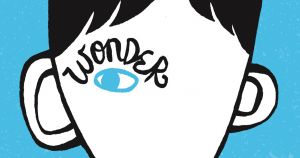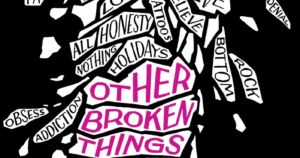
Review: Wonder by R.J. Palacio
In the time since I first read Wonder, my understanding of my disfigurement, and the world it occupies, has transformed. How will I now read and receive what was the most personally representative book of my life?

In the time since I first read Wonder, my understanding of my disfigurement, and the world it occupies, has transformed. How will I now read and receive what was the most personally representative book of my life?

Despite some reservations, our reviewer would recommend this contemporary novel about young Bat – and the reviewer’s ten-year-old goddaughter agrees.

The portrayal of epilepsy in this book was frustrating and disrespectful. People with epilepsy deserve better than this.

Stoner & Spaz is funny and often unafraid of ambivalence, and I feel similarly ambivalent: liking a lot of what I got, yet wanting more of the stuff between the lines of what Ben says and does.

Queens of Geek is an authentic and refreshing portrayal of an autistic and anxious girl.

Julia is a Deaf teen girl who is creative, artistic, and passionate. And she is an authentic portrayal of deafness.

I was intrigued by the virtual-reality premise, but this book is a veritable hotbed of misogyny and a case study in how not to write a wheelchair-using character.

Princess Tilda does not demonstrate the need to “overcome” her clubfoot, that word many of us in the disability community have come to loathe. To me, Tilda represents a new kind of heroine, who is strong and doesn’t need saving, but also acknowledges and shows her vulnerability and insecurities.

All the way through the book, I felt that something was slightly off with the portrayal of Tessie’s selective mutism, but in a way that made it hard to pin down.

Wonderstruck is wonderful. It is, to date, the most creative and ambitious novel about the d/Deaf experience in America I’ve ever come across.

The characterization and descriptions of Grace do disabled readers a disservice in more ways than one.

I appreciated the honesty and authenticity with which the emotional aspects of serious illness were written; the actual details of day-to-day life with cystic fibrosis, however, were a mixed bag.

Skim does a good job of showing misguided attempts to help those with depression, and lets the reader see the absurdity for themselves.

I wish this book, featuring a girl newly diagnosed with Crohn’s, had existed when I was a teenager—my recurring thought throughout was, “Oh my god, someone wrote a book for me!”

While some elements of the representation were handled decently, I ultimately wasn’t a fan.

When Deenie was first published, it may well have been a positive representation of the experience of a child with scoliosis, but it hasn’t held up well.

Venkatraman creates a fully-formed character, and nails both the details and the emotion of having a limb amputated and adjusting to life afterwards.

Any time I pick up a book about addiction and recovery, I do so with equal parts hope and trepidation. Despite our differences, I understood Natalie fully and completely from the get-go.

I appreciated the nuance present in both Izzy’s portrayal as an undiagnosed teen with bipolar disorder and in the reactions of those around her.

Eli is a refreshing wheelchair-using character who regularly surprises and aids the protagonist with his skill set and mind.

Vivi’s struggle with bipolar disorder was portrayed accurately and compassionately, and I would highly recommend the book for readers who want to understand the illness better.

Six of Crows portrays disability with incredible nuance; it’s realistic, respectful, and perfectly integrated into the characters and story.

An emotionally wrenching book, but a worthy one, and one that treats its autistic protagonist with every bit of the realism and respect that she deserves.

I highly recommend this book to readers with disabilities who enjoy fantasy, particularly amputees. It’s great to see one of our own portrayed authentically and centered as a main character in an exciting adventure.

This series is a fascinating look at how a writer can acknowledge the “magical cure” trope and improve on the portrayal in later books.